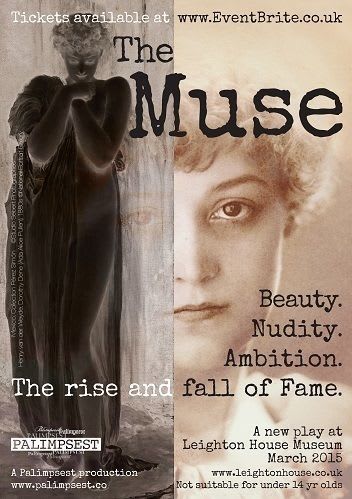For lovers of the Pre-Raphaelites, The Muse is a real treat. The 75-minute performance and its accompaniments offer far more entertainment than a mere play.
To start with, the venue is Leighton House, the sumptuous Holland Park home of Frederick Lord Leighton, an artist who became President of the Royal Academy and is now best remembered for "Flaming June".
To warm up the visitors, the welcome includes a tasteful glass of sherry. Next, the production has been timed to coincide with "A Victorian Obsession", an exhibition of Pre-Raphaelite paintings which complement the building and its standing collection of artworks and present a good sample of the genre.
After a gentle perambulate, the audience is called to attention by the delicious tones of Nina Richardson who sings an original score by John Chambers, to open and close the evening. She also takes the role of Pauline Viardot Garcia, the mezzo-soprano and rather unlikely French performance coach.
That ending, featuring a soulful dirge to the protagonist, a kind of modern Galatea (Eliza Doolittle in Shavian parlance), to whom his Lordship played Pygmalion caps her tragedy.
The serious business of telling her story opens with Michael Hadley portraying the noble Lord in his studio (in the real thing).
He keeps company with an odd group of eccentrics including his neighbour, the irritatingly bumptious and obviously frustrated Mrs Russell Barrington, played by creative director Katharine Tozer.
She is merely an indigestible hors d'oeuvre before the delicious main course. This is an aspiring actress named Dorothy Dene nee Ada Pullan,
For "Fred", Dorothy is truly an obsession, a true Pre-Raphaelite beauty complete with flowing ginger tresses.
As we gradually discover, while the girl has the artist in her thrall, she is insecure and justifiably worried about the future for herself and a stream of sisters whom she has supported from a very young age.
As Dorothy rehearses Cassandra, her problems surface, particularly after the arrival of Fred's opinionated but impecunious Italian friend, Marco Gambino as Giovanni Costa.
He tries to unmask the well-spoken actress and reveal the Cockney beneath the skin, much to her discomfort and our own.
The final scenes between the two men are unsatisfying and feel somewhat contrived but do not take the shine off a splendid evening.
Michael Hadley perfectly catches the manner of an artist at work, especially during the wordless passages in which he almost visibly converts the images that his eyes receive into the beautiful paintings that we see walking around the exhibition.
Tegen Hitchens gives a fine, sensitive performance as a woman torn between her upbringing and her ambitions, trying to find love where society will not permit it to exist and honour which, in the 19th century, was never likely to be an actress’s lot.
The Muse can seem a little schematic, particularly in the scenes involving the lesser characters but the central relationship between Lord Leighton and Dorothy Dene is impeccably realised and captures something of the class and social distinctions between the two who might, in these more enlightened days, have announced their love to the world.
All too often, site-specific performances are gimmicky. On this occasion, the venue and the writing come together to create an event that is very much more than the sum of the parts.
